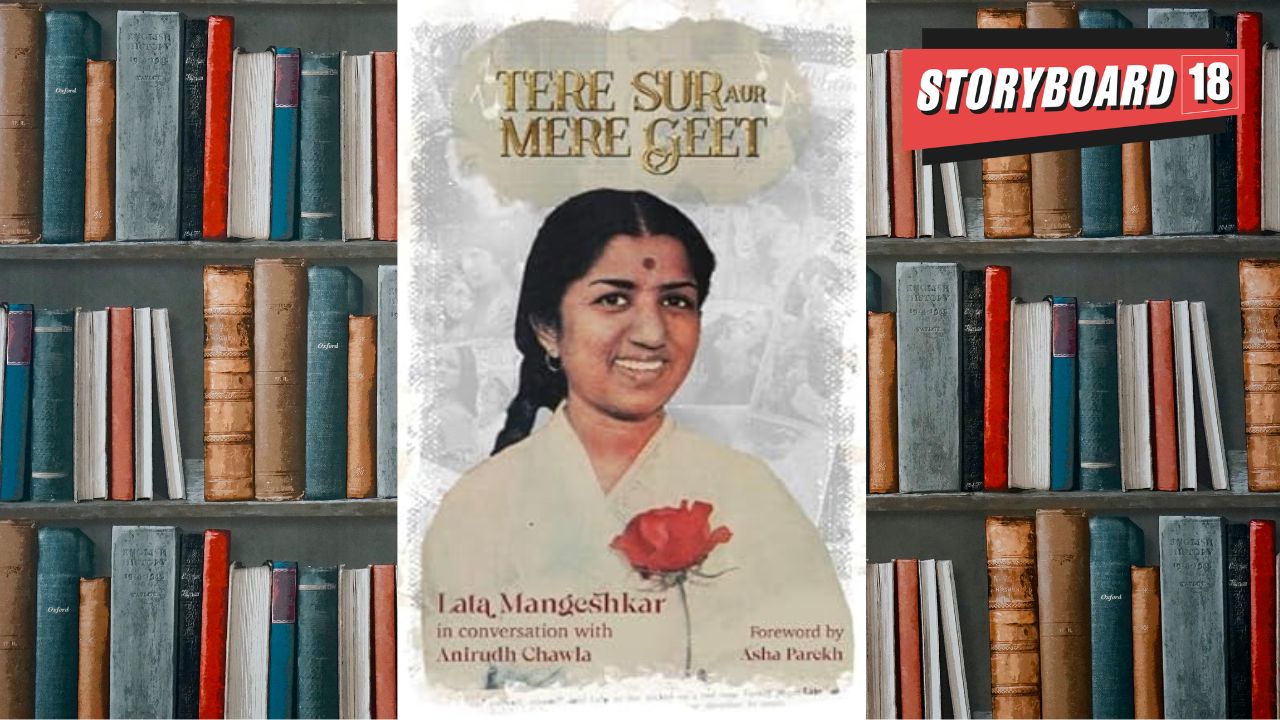Meri aawaz hi pehchaan hai (My voice is my identity)
Have we ever reviewed a book on cinema for #BookStrapping?
No.
Probably because one wasn’t written on Bharat Ratna Lata Mangeshkar since our column began. In corporate terms, she had a definite monopoly on the playback singing market. In marketing terms, the product was so superior it sold on its own merit.
As I perused the book titled ‘Tere Sur Aur Mere Geet’, a much needed tome about the legendary lady we know so little about, the uniqueness of the exercise was plain to see. Written by famed radio jockey Anirudh Chawla, it is a unique book- a compilation of their conversations. By his own admission, the popular RJ met her just six times, out of which, he is credited with conducting the longest interview the singer has every given. This was for six hours in 1999. And hence the idea to transcribe his interactions into a book, which is just under 600 pages and features 69 chapters. It is well known that the author is an absolute expert when it comes to conducting interviews. Which is why the book brings you closer to Lata Mangeshkar in many ways.
The book makes you wish that everyone must discover their true calling. Here are our bookstrapping insights.
1. The anecdotes make you smile. “I wish I had sung for Dilip Kumar”, said Lata Mangeshkar famously in an interview. But of course, she couldn’t! She was always the voice of Nargis, though in her films with Raj Kapoor.
2. “Kambakht kabhi besuri nahin hoti, kya allah ki den hai,” (she never sings out of tune, its God’s grace) said Bade Ghulam Ali Khan famously about Lata Mangeshkar’s voice in reference to her song ‘Yeh Zindagi Usi Ki Hai’ from Anarkali. The rest, as they say, is history.
3. Like in every industry, there are those who don’t get their due. Lata Mangeshkar makes special mention of music composer Jaidev for whom she sang ‘Allah Tero Naam.’ Timeless trivia.
4. The idea that there’s a Lata Mangeshkar song for every mood, every situation in your life comes through very strongly. For instance, Sachin Tendulkar’s favourite, “tu jahaan jahaan rahega,’ is apt for those moments in life when our loved ones depart.
5. Lata Mangeshkar’s hunch that A R Rahman would’ve got along splendidly with Pancham (R D Burman) is a fantastic treat to the reader’s imagination. In her view, both represent ‘techno savvy, revolutionary musicians who were extremely knowledgeable about how to enhance sound. How could one disagree?
There’s a wonderful compilation at the end which is called Lata Mangeshkar’s ‘personal playlist’. No marks for guessing that the maximum number of songs in this belong to Pancham and Kishore Kumar. The book is dotted with rare pictures, Anirudh Chawla is something of a film historian himself with an enviable collection of memorabilia. The book is a reflection of his own emergence as an artist, in an entirely new genre.
